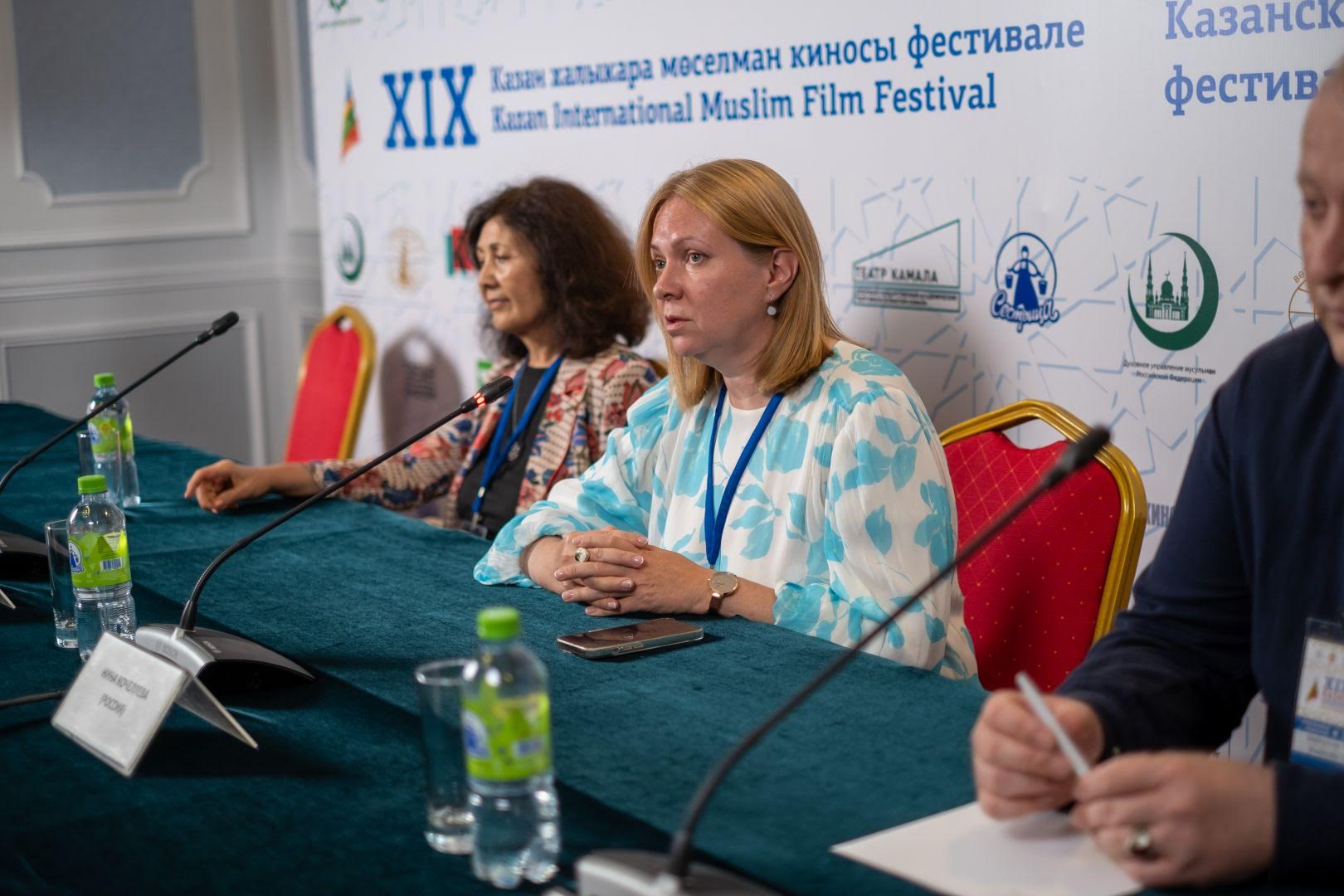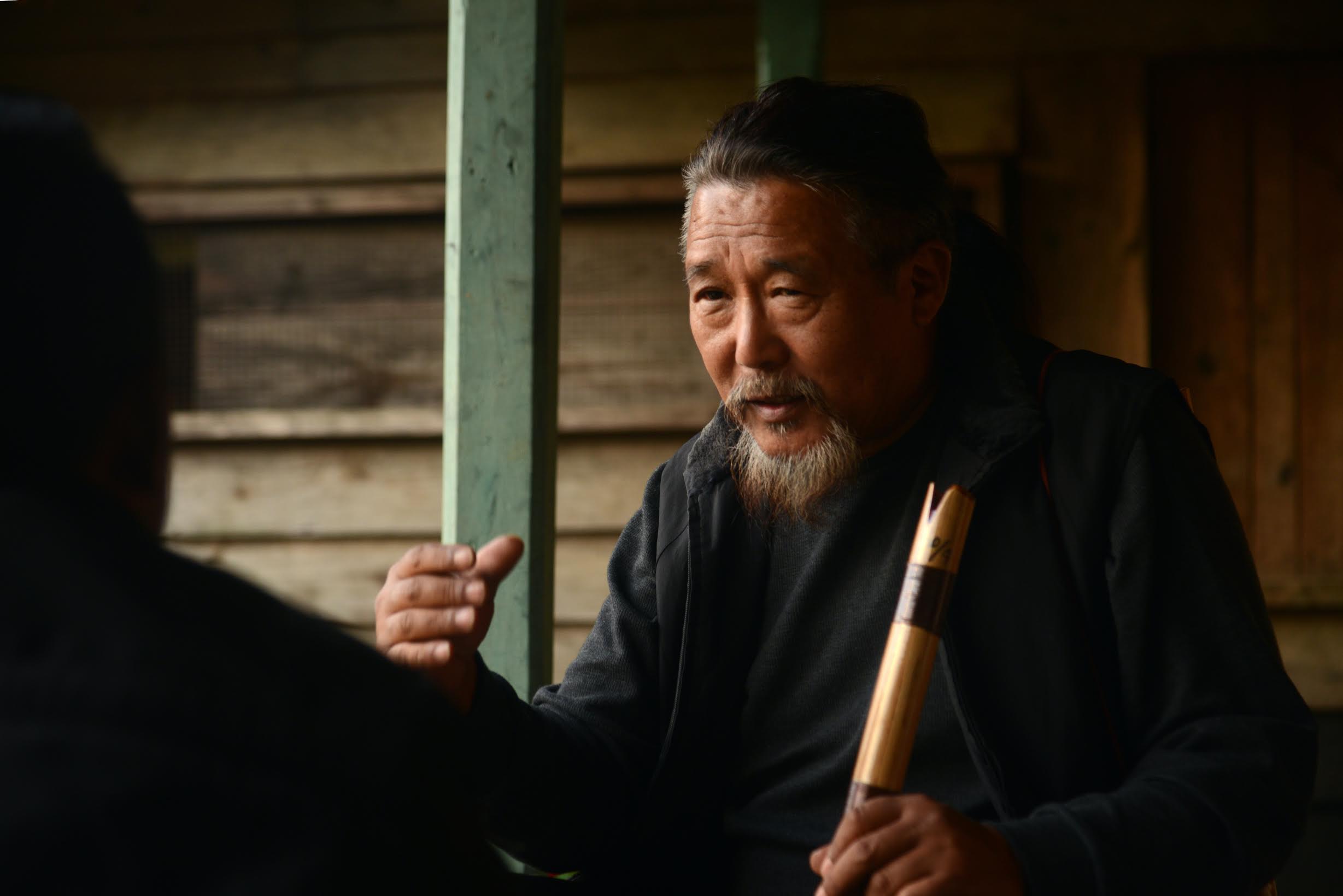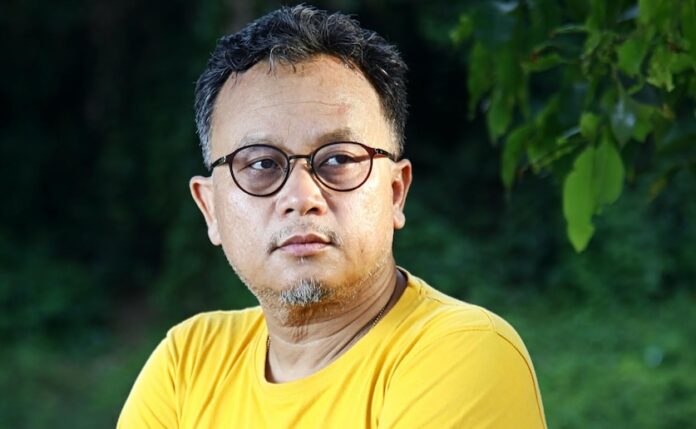By: Sunzu Bachaspatimayum
Contrary to popular belief, Manipuri Cinema continues to make waves on the global stage, showcasing its strength and resilience through powerful storytelling. While the September sky in Manipur may carry a sense of uncertainty, the creative talents of the state shine brightly in the world of cinema. This year, critically acclaimed Manipuri filmmaker Haobam Paban Kumar is set to take centre stage at the 20th Altyn Minbar Karan International Film Festival, with two narrative features, Joseph’s Son and Nine Hills One Valley, selected for screening. This achievement not only highlights the talent of its creator but also reinforces the role of cinema in reflecting the social realities of society.

The Altyn Minbar Karan International Film Festival, held from September 6 to 11 in Kazan, Tatarstan, Russia, is known for its focus on cultural dialogue and human values. In this esteemed event, Joseph’s Son will compete for the main awards in the competition section. At the same time, Nine Hills One Valley will be featured in the non-competition section under the category, “The Fate of Indian Tribes.” Both films delve into the complexities of Manipur’s multi-ethnic society, presenting narratives that resonate deeply with the struggles and hopes of the people.
Joseph’s Son follows a father’s delusional journey as he searches for his missing son, who disappeared after a football match in the city. Through this seemingly straightforward narrative, Haobam invites his audience to experience the trauma and hardship of daily life in a state scarred by insurgency and ethnic conflict. The film begins in the hill district of Ukhrul, home to Joseph, a member of the Tangkhul tribe, and concludes in Imphal, the valley-dominated city where Joseph must identify a body in the mortuary. Haobam masterfully weaves a story around the recurring theme of the hills and the valley—Manipur being a state of nine hill ranges and a central valley—capturing the challenging dynamics of a society divided by conflict and communal discord.

Haobam is clearly striving to capture the essence of Manipuri Cinema through his casting choices and multilingual approach in ‘Joseph’s Son’. The film is primarily shot in various dialects spoken in Manipur, with 60% of the dialogue in the Tangkhul dialect, alongside Meiteilon, Thadou, Nepali, and Bihari, creating a unique narrative. In his casting, Haobam intentionally chose renowned Tangkhul folk singer Rewben Mashangva as the protagonist and included characters from other communities to represent the true mosaic of Manipur.
Haobam’s journey as a filmmaker has been marked by his search for a unique narrative style that captures the essence of Manipur’s struggles. His second and third feature films, Nine Hills One Valley and Joseph’s Son, respectively, continue this exploration, offering an unflinching look at the fractured multi-ethnic society of his home state. With a focus on the lived experiences of the people in the hills and valleys of Manipur, these films tackle themes of angst, mistrust, underdevelopment, migration, and identity.

Haobam’s foray into fiction began with his 2016 debut Loktak Leirembee (Lady of the Lake), a film that received acclaim for its poetic style and political commentary on the weaponization of traditional society. The film, which premiered at the Berlin and Busan International Film Festivals, marked a significant departure from Haobam’s earlier work in documentaries, such as the award-winning AFSPA 1958, which addressed the controversial Armed Forces (Special Powers) Act. His 2006 documentary A Cry in the Dark made history as the first Manipuri documentary to premiere at the Toronto International Film Festival (TIFF), highlighting his ability to bring pressing social issues to the forefront through cinema.

Reflecting on his latest projects, Haobam describes them as personal explorations of the complex identity politics and discord that define life in Manipur. “These films are my journey of grappling with the inherent dilemmas of being born in a place absorbed with the conflicting dynamics of a multi-ethnic society,” Haobam explains. By choosing to focus on stories rooted in Manipur’s socio-political landscape, Haobam has become a prominent voice in Manipuri Cinema, using his craft to give voice to the silenced and overlooked narratives of his people.
The selection of Joseph’s Son and Nine Hills One Valley for the Altyn Minbar Karan International Film Festival is not just a triumph for Haobam but a proud moment for Manipur. These films will bring the stories of Manipur to a global audience, offering insight into a region often overshadowed by mainstream narratives. The Karan Festival, which started in 2005, has become a significant cultural event, drawing filmmakers and cinephiles from around the world. Its focus on human relationships, family values, traditions, and moral issues aligns perfectly with the themes explored in Haobam’s work.
As these films make their way to international screens, they reaffirm the power of cinema to reflect and shape the social status of a society. Haobam Paban Kumar’s work serves as a testament to the enduring spirit of Manipuri Cinema and its ability to resonate far beyond its borders.
The writer is the Secretary of Manipur State Film Development Society


